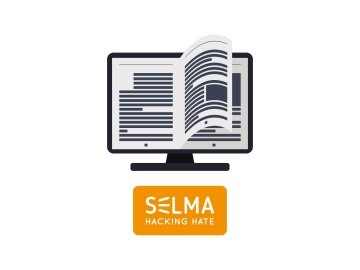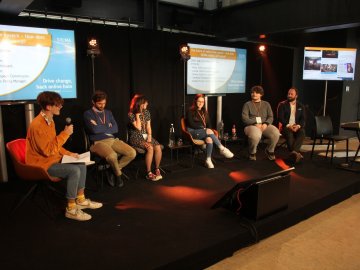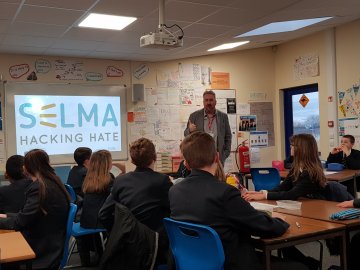Every month, we focus on a different dimension of online hate speech, to foster a better understanding of how hate speech affects people, how we can respond to it and how we can effect positive change at a wider societal level.
In March, we began with an exploration of the reasons why people hate online; in April, we looked into the consequences of online hate speech; in May, we reflected on strategies to promote tolerance and empathy online; in June, we discovered the power of counter-narratives; in July, we discussed peer mentoring; and in August, we delved into how hacking online hate requires a concerted, multi-stakeholder effort.
This September, the back-to-school season offers the perfect opportunity to focus on how teachers and other education professionals can use the SELMA Toolkit, not only in their classrooms, but also more generally in their schools.
A whole-school approach to hack online hate with SELMA
We, the SELMA partners, believe that schools should address the problem of online hate speech through a whole-school approach.
The objective of preventing and addressing hate speech should be promoted consistently and systematically across the various dimensions of school life. Staff, parents and students should all contribute, as to make the whole-school strategy attainable and attuned to real needs. Schools should also cooperate with external stakeholders such as youth organisations, social workers, health professionals, public authorities, non-governmental organisations and industry. This will help to deal with issues on which they wouldn’t otherwise have the relevant expertise.
Within this context, the SELMA Toolkit offers hands-on activities that can be run as one-off sessions to trigger immediate engagement and effect, as well as clear guidance on how to build more comprehensive and sustained pathways of change, combing media literacy knowledge and skills with social and emotional learning. The Toolkit considers online hate as a pattern of behaviour, interconnected with the social and cultural contexts in which it takes place. It involves children and young people in a wider societal debate on how to replace the culture of online hate with tolerance and mutual respect.
SELMA in action
This month, we will look in more detail at a range of SELMA activities and resources that can help teachers and educators to address online hate and organise sessions on the topic with their students – the Toolkit, the Hacking hate MOOC “How to empower young people to understand and disrupt online hate” and the SELMA Ambassador programme.
More concretely, we will publish three articles this month:
- Have you heard of the SELMA Ambassador programme? It is open to anyone working with young people and committed to hacking online hate with SELMA. As part of our monthly focus, we will take a closer look at what it entails and how to become a SELMA Ambassador.
- We will then learn more about whole-school approaches to prevent and tackle online hate: what do they consist of, how do they benefit learners, and how can you develop and implement them?
- Finally, we will introduce our “How to?” guide for school teachers. This will help teachers to find their way through the wealth of SELMA Toolkit modules and materials.
In the meantime, stay up-to-date and participate in the conversation with teachers and other education stakeholders on hacking online hate in the classroom and at school; keep an eye on our Twitter hashtag #SELMA_eu, and follow us on Facebook.






